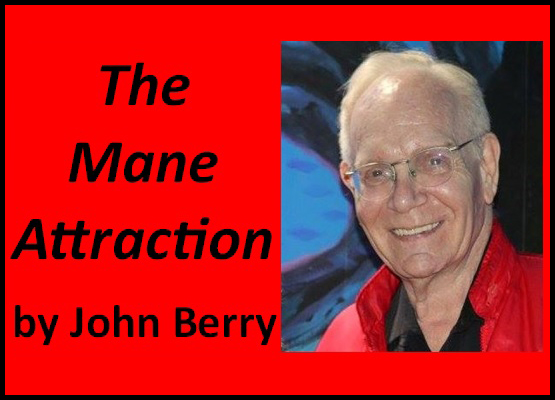Dan Daley, Esquire, is the son of longtime horseman Dan Daley and prominent owner Ann-Mari Fedun Daley.

As a member of the Florida Legislature, Daley fought hard to keep harness racing alive in the Sunshine State but his staunch efforts to save harness racing’s only pari-mutuel track ultimately fell on “deaf ears” when Governor DeSantis signed the decoupling bill last year.
He agreed to give us his insight on the past and future, if there is any, of harness racing with an exclusive interview for Harnesslink.
HL: First and foremost, Dan, thank you so much for agreeing to this interview. It has been a frustrating time for the horsemen and women to see their vocation erased by the stroke of the Governor’s pen. But let’s start at the beginning…
Growing up in a harness racing environment, did you ever have aspirations of following in the hoof prints of your dad and family and become a trainer and driver, as well?
DD: Look, I love mom and dad very much. I have never seen a horseman as dedicated as my dad. Rain, sleet, snow…doesn’t matter to him. He loves what he does—not so much the cold anymore—day in and day out. He does what he loves. And, if he taught me anything in life, it’s do what you love to do…and I love what I do.
HL: Your educational background is in Political Science and Criminology and, of course, law. What was the catalyst in choosing those fields?
DD: Well, I was interested in law from a very young age and I was always interested in public service. It was kind of a natural transition because, when I was a kid, I would help in the stable shoveling manure. Now, I do the same thing in a court room!!!
HL: You were one of the youngest—if not THE youngest person to be elected to Florida’s State Legislature. How was your interest in the political arena “foaled,” so to speak?
 DD: Well, like I said, I was always interested in public service and, when you’re in public service positions, you cannot be driven by money. I’ve practiced law for a number of years and, with my new position as Assistant District Attorney for Broward County. I do this to make a difference in people’s lives.
DD: Well, like I said, I was always interested in public service and, when you’re in public service positions, you cannot be driven by money. I’ve practiced law for a number of years and, with my new position as Assistant District Attorney for Broward County. I do this to make a difference in people’s lives.
HL: Though you’re still a “young whippersnapper,” you were the youngest elected official in the State of Florida as a City Commissioner serving Coral Springs and that led to becoming Vice Mayor in 2015…all the while working towards your law degree.
DD: Yeah, I juggled a lot. When I was City Commissioner, it was a part time position. The legislature is a part-time position but, to do the work the right way, they are both full time positions…if you want to do them the right way.
HL: What were the circumstances in your getting a seat in Florida’s House of Representatives in Tallahassee?
DD: I had been a City Commissioner for several years and a seat in the House opened up and they ran a special election to fill the seat.
HL: And you won!
DD: Yes………………I ran unopposed!
HL: Of course, the Florida legislature has what they deem as more important items than our harness racing interests, so was this a continual uphill battle in Tallahassee? Obviously, yes!
DD: Yes, of course it was an uphill battle but, I must say, that Joe Pennacchio really did a great job—unappreciated, by the way—in keeping things alive for so long. Had Joe not been up in Tallahassee fighting, this could have happened years ago. To tell you the truth, the horsemen were their own worst enemy. I realize that they don’t have the funding like the thoroughbred industry, but the world of politics has many pieces to put together for things to happen.
Yes, it’s dollars and cents but it takes a concerted effort of the horsemen with e-mails and letters and phone calls to legislators. We didn’t see any of that…or very little. Economics played a huge roll in this happening with land values the way they are…and a lack of horsemen relationships in Tallahassee. The horsemen were outplayed by Caesars, They had forged a relationship with Wilton Simpson (Senate President) and our bill never even got to the floor because of that relationship. It’s called politics! Ironically, he’s now the Commissioner of Agriculture, so you can make your own assumptions.
HL: Recently, you were appointed as Assistant State Attorney after serving in Florida’s House of Representatives for over four years. Did you leave the political arena because of frustration with the system? It seems like bipartisan politics is a thing of the past.
DD: I haven’t left the political arena. I am still a representative of — and for—the people. But, yes, it can be very frustrating. In politics, as a moderate, I have my principles and I have to represent the interests of the folks who voted me to represent their interests. But it’s tough to tell some politicians that the word compromise is not a bad word.
HL: Turning back the clocks, in 2004, the proposal to allow the building of casinos in Broward County passed with voter approval and, voila, three years later, casinos were up and running here…with the stipulation that racing be protected. Subsequently, this “decoupling” initiative began to surface—something that you, “Mr. Esquire,” fought tooth and nail against. How did the Governor get away with locking out the very voters that voted casinos IN with the stroke of a pen? Did he do something illegal here? It sure look liked political donations were stronger than the voters say-so.
DD: Let’s just say he stretched the existing law. The horsemen had nothing in actual writing and, in politics—ESPECIALLY in politics—a handshake is not enough anymore.
HL: Since “agriculture” is supposed to be a big part of Florida’s economy, I didn’t see too much of a stand against the decoupling bill from the our Secretary of Agriculture. After all, this weakened Florida’s agriculture and put thousands of people out of work—from those directly involved in the sport and the businesses that benefitted from Pompano Park just being open.
DD: Like I said, Wilton Simpson, then Senate President, indicated, at first, he’d help but, when push came to shove, he was very close to Caesars and never let my bill get to the floor to discussion or a vote.
HL: Many of us were surprised that the famed Pompano Park building wasn’t made a historical landmark honoring the Van Lennep family for putting the city on the map 70 years ago.
DD: The land value made that impossible. And there aren’t that many parcels of land for development these days. It was a business decision on their part.
HL: Plain and simple…Is the Governor a strong-arm dictator with a cult membership in Florida’s legislature?
DD: Let’s just put it this way. I don’t agree with his methods…and he’ll hit you over the head to get his way.
HL: Finally, Dan, do you think that harness racing can be rekindled in Florida and, if so, where?
DD: It would have to be a legislative act. To even begin, if the horsemen are serious, people have to write their legislators, e-mail their legislators and phone their legislators. The more they hear from the public, the more serious they will take the issue. I’ll always work on their behalf…but I sure can’t do it all by myself.
HL: Thank you, Dan Daley, Esquire, for your insight. We all thank you for fighting for our lives!
by John Berry, for Harnesslink

 USA
USA Canada
Canada Australia
Australia New Zealand
New Zealand Europe
Europe UK / IRE
UK / IRE


